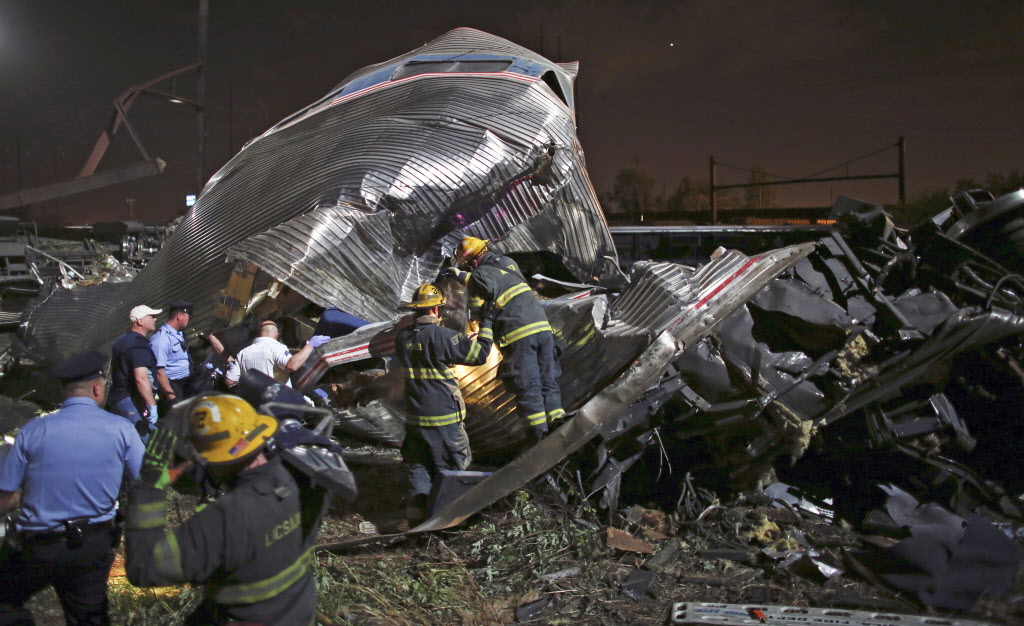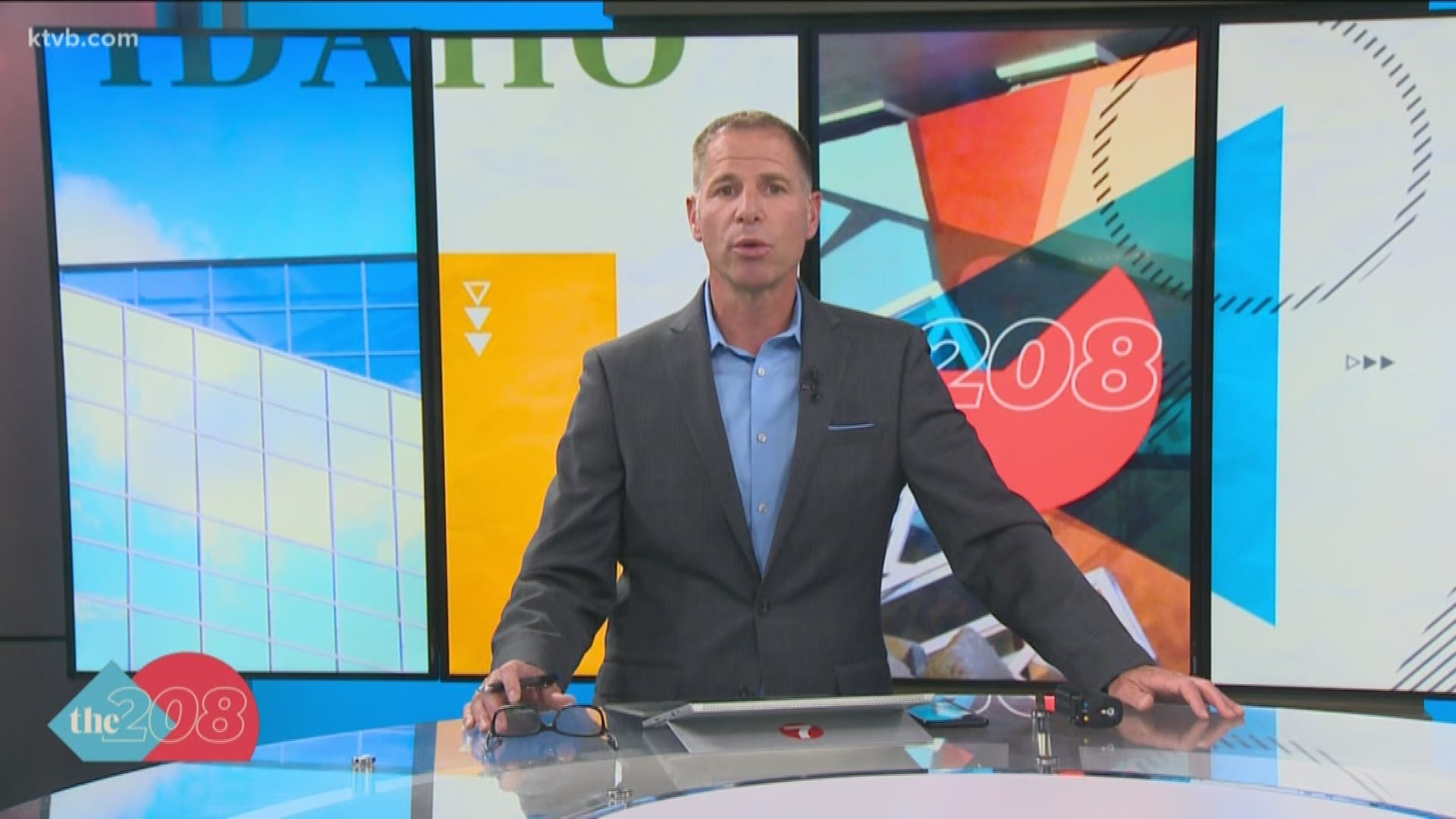WASHINGTON — Federal crash investigators are expected to rule Tuesday that the engineer in the fatal Amtrak crash in Philadelphia a year ago was distracted by radio messages, according to published reports.
The National Transportation Safety Board will hold a hearing about why the Amtrak train was going 106 mph, or more than twice the 50 mph speed limit, before it derailed, killing eight people and injuring nearly 200.
The Associated Press, citing an unnamed source, said the engineer, Brandon Bostian, told investigators that he recalled radio traffic that night from a commuter train operator who said a rock had shattered his windshield. The unnamed official was unable to say whether those were the transmissions that distracted Bostian.
Bostian, who cooperated with investigators, has said he doesn't remember much about the derailment May 12, 2015, and couldn't explain why the train was moving so fast. But in a previously released NTSB report, Bostian recalled radio messages from a Southeastern Pennsylvania Transportation Authority (SEPTA) commuter train operator who warned about a rock hitting the other train's windshield.
"He reported that rocks had hit his windshield," Bostian told investigators according to an NTSB transcript. "The dispatcher asked him a couple of times if he needed medical attention. He didn't answer directly and so, they went back forth a few times."
The SEPTA engineer told a radio dispatcher that his windshield had been shattered, according to the NTSB report, released Feb. 1. The SEPTA engineer was ahead of the Amtrak train, and Bostian called by radio and blew his whistle to signal that he was approaching and about to pass the commuter train on the adjacent track, according to the report.
Bostian, who was not using his cell phone and wasn't intoxicated during the incident, told investigators the last thing he recalled before the crash was the 30th Street station in Philadelphia. But the crash was about 8 miles north of there, and the train's throttle was moved to full, or "notch eight," about 55 seconds or 1.5 miles before the curve, according to investigators.
The safety board is expected to rule that radio transmissions distracted Bostian, according to The Associated Press and other news outlets, who based their reports on sources on condition of anonymity because they weren't authorized to comment publicly.
The four-member board will vote at the conclusion of its hearing on the official findings of the investigation, the probable cause of the crash and recommendations to avoid future crashes. Peter Knudson, a board spokesman, declined comment ahead of the hearing.
Bostian's recollections of the accident are vague. He acknowledged moving the throttle to go 80 mph, but not faster.
![Amtrak engineer describes 'dream-like' memories, not details of fatal crash [oembed : 84465370] [oembed : 84465370] [oembed : 84465370] [oembed : 84465370]](/Portals/_default/Skins/PrestoLegacy/CommonCss/images/smartembed.png)
"There's several gaps in my memory as I approached the accident curve," Bostian told investigators in November of a "dream-like" or "very foggy memory" of the incident.
The 2,200 pages of documents featured the first transcripts released from Bostian, who wasn’t on his phone and wasn’t intoxicated at the time of the crash. He tried applying brakes when he realized the train was tipping, but it was too late.
"About the same time I put the train into emergency, I recall hoping that the train would not tip completely over," Bostian told investigators. "I remember holding onto the controls tightly and feeling like, okay well this is it, I'm going over. And so I tried to brace myself."


![AP AMTRAK CRASH INVESTIGATION A FILE USA PA [image : 84465004]](http://www.gannett-cdn.com/media/2016/05/16/USATODAY/USATODAY/635990230327403496-AMTRAK-CRASH.JPG)
![AP AMTRAK CRASH ENGINEER A USA MO [image : 84465176]](http://www.gannett-cdn.com/media/2016/05/16/USATODAY/USATODAY/635990230913247331-AMTRAK-CRASH-ENGINEER.JPG)
